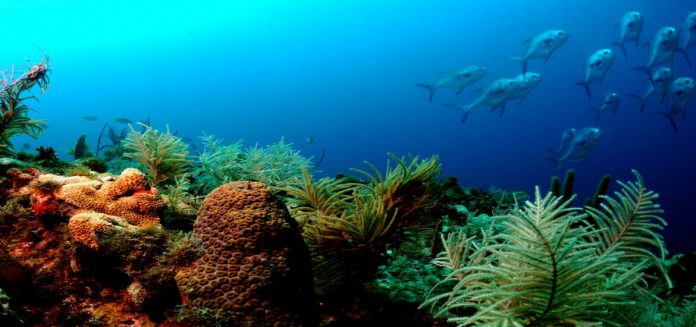The twin stress factors of ocean warming and acidification increasingly threaten coral reefs worldwide, but relatively little is known about how various climate scenarios will affect coral reef growth rates.
Our research, published today, paints a grim picture. We estimate that even under the most optimistic emissions scenarios, we’ll see dramatic reductions in coral reef growth globally. The good news is that 63% of all reefs in this emissions scenario will still be able to grow by 2100.
But if emissions continue to rise unabated, we predict 94% of coral reefs globally will be eroding by 2050. Even under an intermediate emissions scenario, we project a worst-case outcome in which coral reefs on average will no longer be able to grow vertically by 2100.
The latter scenarios would have dramatic consequences for marine biodiversity and the millions of people who depend on healthy, actively growing coral reefs for livelihoods and shoreline protection. This highlights the urgency and importance of acting now to drastically reduce carbon dioxide emissions.
Coral reefs are home to more than 830,000 species and provide coastal communities with food and income through fisheries and tourism.
The Great Barrier Reef alone contributes A$6.4 billion to the Australian economy. Critically, coral reefs also protect coastlines from storm surges and create land for many low-lying Indo-Pacific island nations.
Marine heatwaves, caused by ongoing ocean warming, have already had a severe impact on coral reef ecosystems by triggering mass bleaching events. These events are becoming more frequent and intense, and cause mass die-offs across large areas. Read more…



